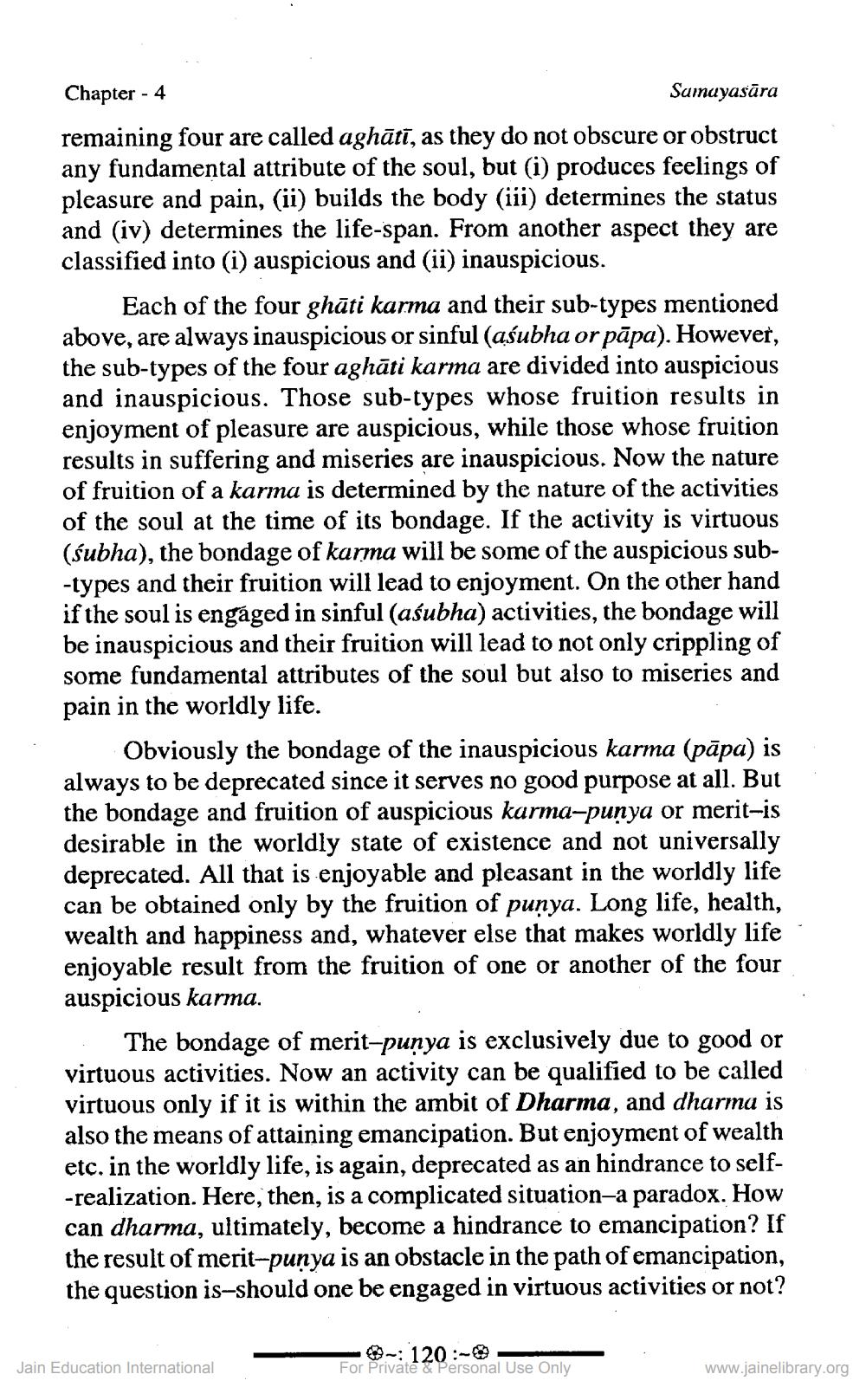________________
Chapter - 4
Samuyasāra
remaining four are called aghāti, as they do not obscure or obstruct any fundamental attribute of the soul, but (i) produces feelings of pleasure and pain, (ii) builds the body (iii) determines the status and (iv) determines the life-span. From another aspect they are classified into (i) auspicious and (ii) inauspicious.
Each of the four ghāti karma and their sub-types mentioned above, are always inauspicious or sinful (aśubha or papa). However, the sub-types of the four aghāti karma are divided into auspicious and inauspicious. Those sub-types whose fruition results in enjoyment of pleasure are auspicious, while those whose fruition results in suffering and miseries are inauspicious. Now the nature of fruition of a karma is determined by the nature of the activities of the soul at the time of its bondage. If the activity is virtuous (śubha), the bondage of karma will be some of the auspicious sub-types and their fruition will lead to enjoyment. On the other hand if the soul is engaged in sinful (aśubha) activities, the bondage will be inauspicious and their fruition will lead to not only crippling of some fundamental attributes of the soul but also to miseries and pain in the worldly life.
Obviously the bondage of the inauspicious karma (pāpa) is always to be deprecated since it serves no good purpose at all. But the bondage and fruition of auspicious karma-punya or merit-is desirable in the worldly state of existence and not universally deprecated. All that is enjoyable and pleasant in the worldly life can be obtained only by the fruition of punya. Long life, health, wealth and happiness and, whatever else that makes worldly life enjoyable result from the fruition of one or another of the four auspicious karma.
The bondage of merit-punya is exclusively due to good or virtuous activities. Now an activity can be qualified to be called virtuous only if it is within the ambit of Dharma, and dharma is also the means of attaining emancipation. But enjoyment of wealth etc. in the worldly life, is again, deprecated as an hindrance to self-realization. Here, then, is a complicated situation-a paradox. How can dharma, ultimately, become a hindrance to emancipation? If the result of merit-punya is an obstacle in the path of emancipation, the question is-should one be engaged in virtuous activities or not?
Jain Education International
- 120:For Private & Personal Use Only
www.jainelibrary.org




